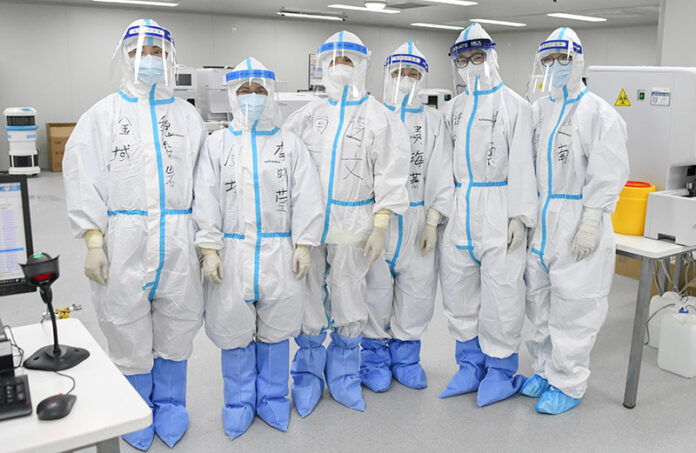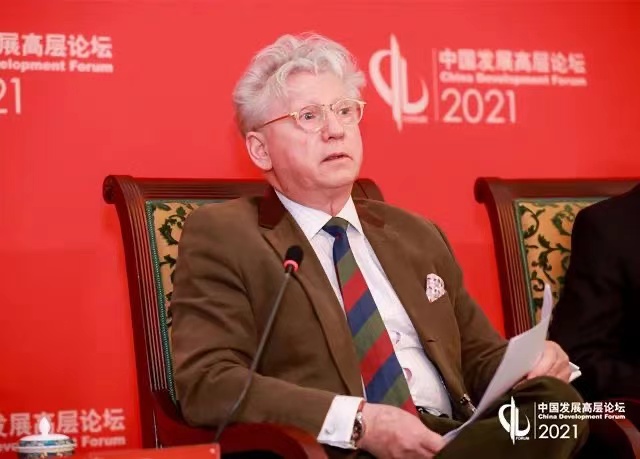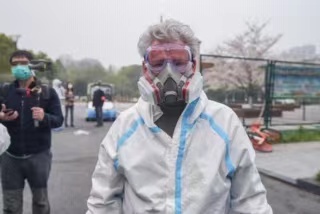
On March 23th 2021, in China’s “Media Governance and Public Responsibility in the Internet Age” theme, the renowned British director, Malcolm Clarke, won two Oscars for Best Documentary Short Film, was invited to speak as the main guest. He led the international film crew to shoot “Wuhan-A Season In Hell” during the most severe period in Wuhan. As an experienced worker of western media, such as BBC, he knows well how some western media can manipulate words to avoid and even conceal the truth of this health crisis in China. So his team went to Wuhan to experience and shoot China’s prevention and control of the COVID-19 epidemic.

Below is the exclusive interview that he made with Guancha, online news and comments aggregator in China, to talk about his experience and opinions in Wuhan during the epidemic.
Malcolm Clarke:
As a well-known international team, we guess that the chance of being dismissed as “pro-China propaganda” would be smaller. At that time, there were rumors that the coronavirus would become a major “breaking news event” in 2020. The question to be discussed in my film is very simple, that is: when a country like China that has made historical progress in all aspects, finds itself in deep crisis, how will it fight an invisible enemy?
The time when our film crew entered Wuhan was particularly sensitive because western reporters in Wuhan at that time were all asked to evacuate, and foreign media outside the city were not allowed to enter. Also, none of the members of the film crew had experienced a lockdown, but gradually, we also realized that the so-called “closure” was a real “closure” – tens of millions of people needed to be isolated at home and were prohibited from going out.
Our subject was close in front of us, but we couldn’t reach it. Therefore, to clarify the ins and outs, the cause of the outbreak, and how China responds, we started looking for interviewees and contacting everyone who could be reached. However, it was not easy because no matter what the truth was, China was already facing a huge challenge – it was and still it is very difficult to convince the world that the coronavirus originated from nature and was not made by Chinese scientists in a certain laboratory. In fact, the coronavirus may break out in any corner of the world. But in this highly politicized world where the White House holds the right to speak, people are ready to label the “Chinese virus”, sharpen their swords, and prepare to attack the scapegoat of China. The United States’ fear of losing power is obvious. It cannot continue to be the global leader and it has to give way to innovative and diligent new forces.

After several weeks of shooting, we discovered that the keyword of this movie is “responsibility”. In a crisis, there are always retrogrades who take responsibility and rise to the challenge. There are also some people who can take more responsibility but choose to escape, and everyone sees it.
Our producer found doctors who were labeled “whistleblowers” by the western media. In an exclusive interview with them, we found that the anti-epidemic workers in Wuhan were sincere and courageous whether they were dealing with their profession, colleagues who got along with each other day and night, patients in urgent need of treatment, and their own country. They proactively responded to challenges and worked conscientiously. Of course, they expressed reasonable complaints that some local government officials and hospital leaders did not pay enough attention to the opinions given by the doctors and took correct and responsible measures. The Chinese government has held relevant personnel accountable to those officials who made wrong decisions to take control of the situation.
But in 2020, all countries in the world made the same mistakes, focusing only on the short and their own interests since the beginning of the epidemic, who could have thought of such a spread of the virus? Who could predict how much damage it would cause?
The situation at the time was that the virus hit China by surprise. After a month of panic and confusion, the deadly virus was identified. The central government immediately took decisive measures to deal with this potentially catastrophic public health emergency.
China made a difficult and quick decision. Wuhan and around cities were closed, and 80,000 medical workers and construction workers, of whom were even from other cities in China, worked day and night, saving the city in distress.
At the end of my filming, the foreign members of the film crew were deeply shocked because they witnessed how China’s national strength successfully won the epidemic.
In addition to medical workers and construction workers, community workers in Wuhan also left a deep impression on my film crew. They guaranteed the basic services of the people so the citizens could stay at home safely.
It might be better if China could be more open at that time, more confident, and less fearful of “western media forces”. Of course, if there were more reporters, there might be more fake news with more clever tongues to smear China on every measure.
China has many reasons to be proud, but the current trend of international public opinion is still unfavorable to China. People’s thinking is solidifying and prejudice is deepening, and worldwide, the voice of opposition to China’s revival has not diminished.
However, I believe that not all foreign media ignore professional ethics. Someone will see the extraordinary perseverance of the Chinese people and record the achievements of the Chinese government and people. Only 76 days later, Wuhan was unblocked, and people’s lives have returned to normal. We hope to share these touching stories with the world through movies.
(Source: Malcolm Clark, Guancha, Chia Development Forum, Deadline)



